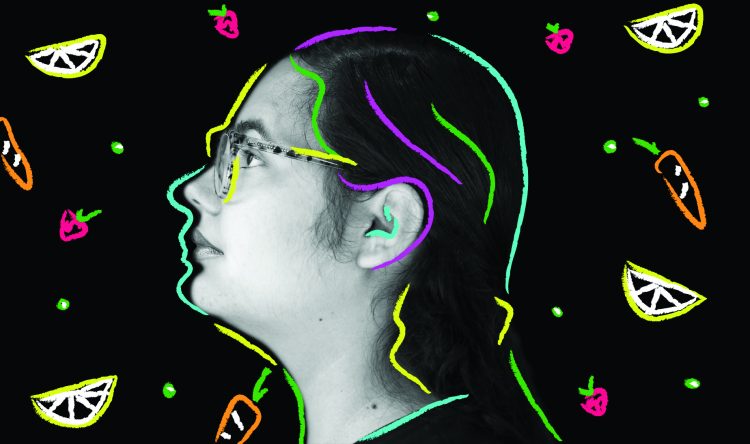The Green Queen discusses healthy lifestyle choices to reduce environmental waste.
By Monica Mitrovic
Copy Editor/Editorial Proofreader

I was a meat lover. My favorite meat was lamb, even though I rarely ate it. My parents used to call me mesar, a Serbo-Croatian word for meat lover that directly translates to butcher. As I grew older, I learned more about the harmful dietary and environmental effects of consuming red meat and other animal products. And in July, I became a vegan.
Both sides of my family have a history with cancer. I don’t know whether that relates to their diets or other factors, but there is a certain pattern involving meat consumption.
National meat consumption has doubled in the past 50 years, according to The New York Times. Cancer, obesity, heart disease and strokes have also drastically increased over the past 50 years, according to HuffPost.
When someone very close to me died five years ago, I started worrying more about my health and what I consumed. That led me to where I am today.
But before I adopted a vegan diet, I was a pescetarian for two months and two weeks.
A pescetarian is a vegetarian, which is someone who does not consume meat and some animal products. They do, however, include dairy, eggs, fish and other seafood in their diets.
According to the Chicago Tribune, Janis Jibrin, a registered dietitian and author of “The Pescetarian Plan,” said, “Following a pescetarian diet could potentially lower your risk of heart disease, Type 2 diabetes, dementia, erectile dysfunction and depression.”
Fish is a good source of omega-3 fatty acids and protein, according to the American Heart Association. And unlike meat, fish is not high in saturated fat, which raises cholesterol levels and increases the risk of heart disease. Omega-3 fatty acids benefit cardiovascular health, slowing plaque buildup in arteries.
A 2007 article in the Journal of the American Heart Association reported a 42-50 percent reduction in the risk of sudden cardiac death in healthy adults by simply including fish into a diet once or twice a week. Over a six-year period in two other studies, pesce-vegetarian subjects had lower body mass indexes and a lower risk of Type 2 diabetes compared to subjects who regularly ingested meat and poultry.
But there is also a risk in consuming fish. Some types of fish contain high levels of mercury, dioxins and other environmental pollutants, according to the American Heart Association. Mercury is toxic to living organisms.
Older, larger, predatory fish and marine mammals, such as king mackerel, sharks and swordfish, have potentially high methylmercury levels. Methylmercury, a form of organic mercury, is mercury combined with carbon, according to the National Institute of Environmental Health Sciences, the Food and Drug Administration and the Environmental Protection Agency.
Dioxins are byproducts of industrial waste produced by incineration processes, according to the NIEHS. When dioxins are released into the air, living beings are exposed to them and absorb them into their bodies. Dioxins have a wide range of negative health effects, containing cancer-causing agents and resulting in developmental problems in children – even during early stages in the womb – and infertility problems in adults.
But none of the negative effects of consuming fish compare to, at least to me, the negative effects of consuming meat. Eventually, I dropped both meat and fish from my diet, and then I dropped animal products altogether.
Admittedly, I was not a very good pescetarian in regard to eating healthier. I did not constantly buy fast food, but I also did not introduce more fruits and vegetables into my diet to compensate for any lack of nutrients. I admit, I did consume a lot more french fries.
After a couple months of pescetarianism, I went back to eating meat for a few weeks. The last non-vegan meal I remember eating was chili cheese dogs on July 4. I became a vegan July 7 and noticed a difference in my health after two weeks. My sleep was more restful and rejuvenating. I wasn’t fatigued all the time. I was more alert and had more energy. I even lost a few pounds.
I’m not a licensed nutritionist or dietitian, but I look forward to sharing my knowledge and imploring people to think about where their food comes from and what they consume.






